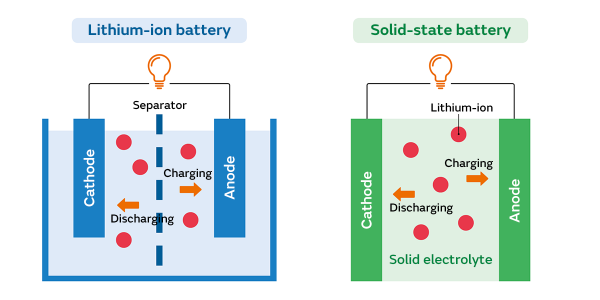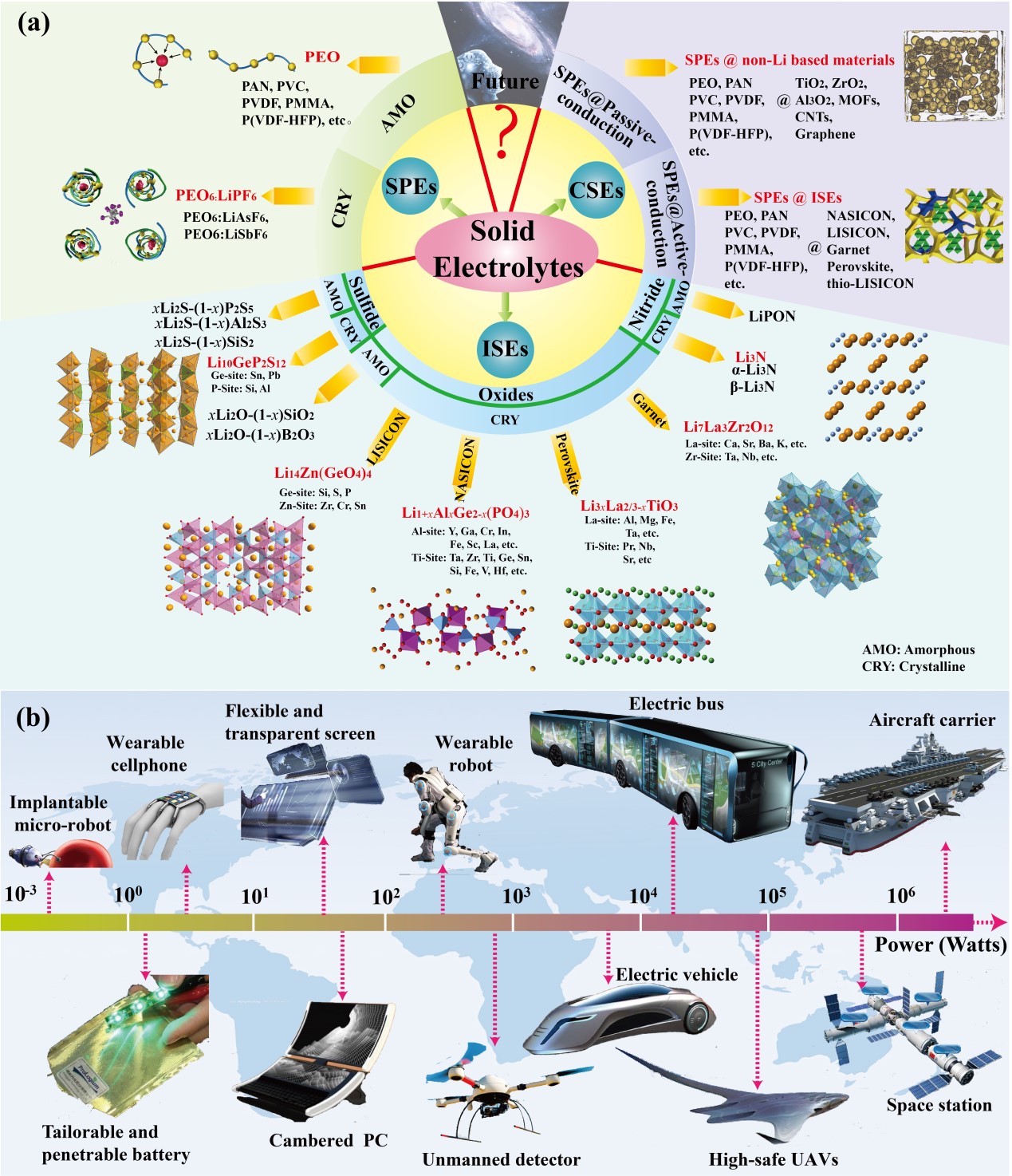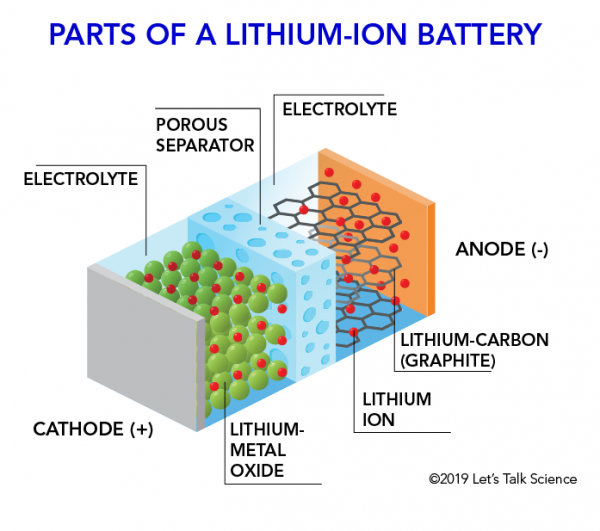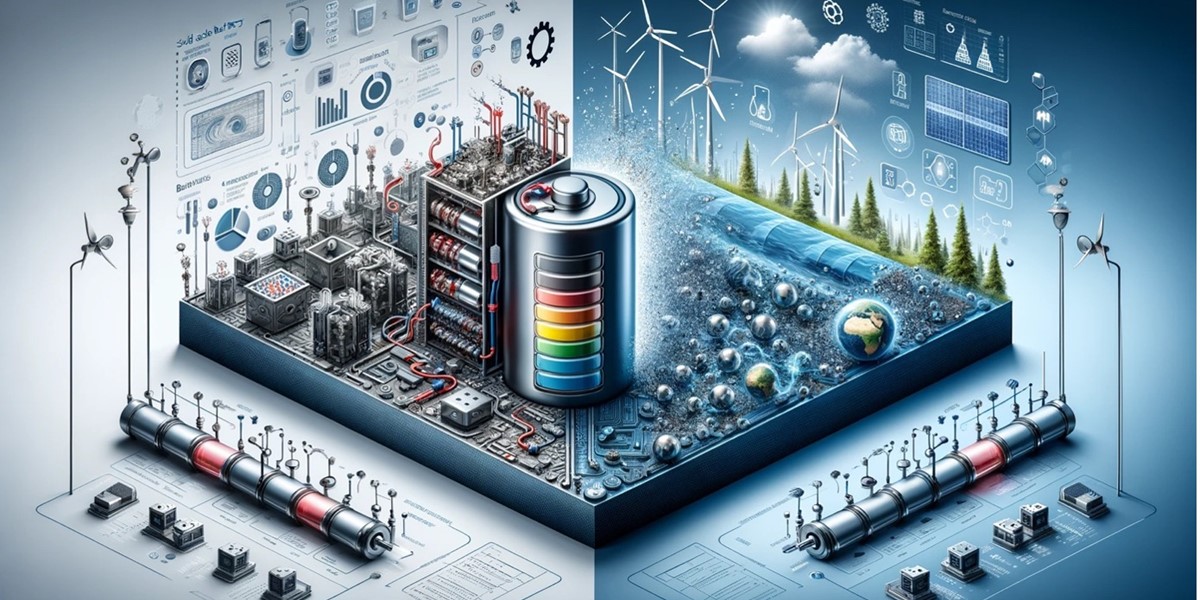
Dans le monde au rythme rapide d'aujourd'hui, L'énergie qui alimente nos appareils est aussi importante que les appareils eux-mêmes. L'électricité est devenue une nécessité pour la vie et le travail de chacun, Et dans le domaine de l'électricité, Les batteries sont sans aucun doute une partie cruciale.
La batterie à semi-conducteurs vs ion lithium est les deux types de batteries les plus courantes, Et ils ont leurs propres avantages et inconvénients et leur impact sur l'avenir. Cet article vous mènera à une compréhension complète des différents mystères de la batterie à semi-conducteurs vs lithium ion!
Concepts de base de Batteries à semi-conducteurs

Définition de la batterie à semi-conducteurs
Une batterie à semi-conducteurs est une batterie qui utilise des électrodes solides et des électrolytes solides. Cette technologie de batterie utilise des composés en verre en lithium et sodium comme matériaux conducteurs. Il n'y a pas de liquide, Mais les solides polymères inorganiques ou organiques servent d'électrolyte de la batterie.
Comment fonctionnent les batteries à l'état solide
Le principe de travail des batteries à semi-conducteurs est basé sur des réactions électrochimiques, qui stockent et libèrent de l'énergie électrique par des réactions chimiques entre les électrodes positives et négatives. Le cœur d'une batterie à semi-conducteurs est son utilisation d'un électrolyte solide, qui mène des ions.
Lorsque la batterie est chargée, Les ions lithium migrent du matériau d'électrode positif vers le matériau d'électrode négatif, et les électrons s'écoulent de l'électrode négative à l'électrode positive; Lorsque la batterie est libérée, Les ions lithium migrent du matériau d'électrode négatif vers le matériau d'électrode positif, et les électrons s'écoulent de l'électrode positive à l'électrode négative.
Applications et avantages de la batterie à semi-conducteurs

Applications
Nouveaux véhicules énergétiques: Les batteries à semi-conducteurs peuvent améliorer la sécurité des nouveaux véhicules énergétiques, aider les véhicules électriques à réaliser une gamme de plus que 1,000 kilomètres, et réduire la défaillance de la batterie et les risques d'incendie.
Systèmes de stockage d'énergie: Les batteries à semi-conducteurs soutiennent le stockage et la distribution des énergies renouvelables et sont d'une grande valeur pour le stockage d'énergie du réseau et le stockage d'énergie domestique. Leur capacité à fournir plus stable, Les solutions de stockage d'énergie à plus long terme sont essentielles pour atteindre l'autosuffisance d'énergie propre dans les ménages et la révolution de la consommation d'énergie.
Aérospatial et navigation: L'application de la technologie de la batterie à semi-conducteurs dans le champ de navette spatial a fait des progrès significatifs. Par exemple, La batterie à l'état solide à haute densité développé par la NASA a démontré ses excellentes performances dans des environnements extrêmes.
Électronique grand public: Smartphones, Les tablettes et autres produits électroniques grand public ont des demandes croissantes pour, batteries de densité d'énergie plus légère et plus élevée. Les batteries à semi-conducteurs peuvent répondre à ces demandes et améliorer l'expérience utilisateur.
Drones et appareils portables intelligents: La densité et la sécurité à haute énergie des batteries à semi-conducteurs les rendent idéales pour les drones et les appareils portables intelligents, Aider à améliorer les performances et la sécurité de l'utilisation de ces appareils.
Avantages
Haute densité énergétique: Les batteries à semi-conducteurs utilisent des électrodes solides et des électrolytes solides. Par rapport aux électrolytes liquides, Les électrolytes à semi-conducteurs ont une structure cristalline plus stable, faire bouger les ions plus efficacement, Les batteries à l'état solide ont donc une densité d'énergie plus élevée. Cela signifie que les batteries à semi-conducteurs peuvent stocker plus d'énergie, offrant une durée de vie de la batterie plus longue.
Chargement rapide: L'électrolyte solide a une conductivité ionique élevée, Les batteries à semi-conducteurs peuvent donc obtenir une charge rapide, Raccourcissez considérablement le temps de charge. De plus, Les batteries à semi-conducteurs peuvent prendre en charge les méthodes de chargement plus puissance, Amélioration supplémentaire de l'efficacité de charge.
Bonne sécurité: Les batteries liquides traditionnelles ont des risques de sécurité tels que la fuite et l'explosion, tandis que les batteries à semi-conducteurs utilisent des électrolytes solides, qui ne sont pas faciles à fuir ou à exploser, Alors ils sont plus sûrs.
Bonnes performances à basse température: jen environnements à basse température, La viscosité des électrolytes liquides augmentera, affectant la vitesse de conduction ionique, Mais les électrolytes solides ne sont pas affectés par cela, Ainsi, les performances des batteries à semi-conducteurs dans des environnements à basse température sont plus stables.
Longue durée de vie: En tant que conducteur d'ion unique, L'électrolyte solide ne provoquera pas de réactions secondaires, Éviter la formation d'un film d'interface électrolyte solide pendant le processus de charge et de décharge, évitant ainsi le problème de la baisse de la capacité. Donc, Les batteries à semi-conducteurs ont une durée de vie de cycle plus longue.
Concepts de base des batteries lithium-ion
Définition de la batterie lithium-ion
Les batteries au lithium sont un type de batterie qui utilise un alliage de lithium métal ou de lithium comme matériau d'électrode négative et utilise une solution d'électrolyte non aqueuse. Ce type de batterie peut être une batterie primaire ou une batterie de stockage, et il repose principalement sur le mouvement des ions lithiums entre les électrodes positives et négatives pour travailler. Les batteries au lithium ont une densité d'énergie élevée et sont largement utilisées dans l'équipement électronique, véhicules électriques, et les systèmes de stockage d'énergie.
Comment fonctionnent les batteries au lithium-ion

Les batteries au lithium-ion stockent et libèrent de l'énergie en déplaçant les ions lithiums entre les électrodes positives et négatives. Pendant le processus de chargement, les ions lithium s'écoulent de l'électrode positive (composé de lithium) à l'électrode négative (matériau en carbone ou en silicium). Pendant le processus de décharge, les ions lithium passent de l'électrode négative à l'électrode positive. Cette réaction se produit par conduction ionique dans l'électrolyte.
Applications et avantages de la batterie au lithium-ion
Applications
Électronique grand public: comme les smartphones, comprimés, ordinateurs portables, caméras numériques, etc..
Outils électriques: y compris les tournevis électriques, forets électriques, scies électriques, etc..
Nouveaux véhicules énergétiques: Comme principale source d'alimentation pour les véhicules électriques purs, Véhicules hybrides et véhicules hybrides rechargeables.
Système de stockage d'énergie: Système de stockage d'énergie pour les sources d'énergie renouvelables telles que l'énergie solaire et éolienne, ainsi que l'équipement de stockage d'énergie pour les réseaux intelligents.
Équipement médical: comme le stimulateur cardiaque, glycémie, B-Ultrasound Machine, etc..
Équipement industriel: y compris l'équipement d'automatisation industrielle, robots, drones, etc..
Champ militaire: Utilisé dans l'équipement de communication militaire, Armes et équipements du système de navigation, etc..
Aérospatial: La densité d'énergie élevée et la longue durée de vie des batteries au lithium les rendent largement utilisées dans le champ aérospatial, comme les alimentations auxiliaires pour les avions, Systèmes d'alimentation pour les navettes spatiales, etc..
Équipement financier et de sécurité: y compris les terminaux de paiement mobile, caméras de surveillance, alarmes, etc..
Avantages
Haute densité énergétique: La densité d'énergie des batteries au lithium est beaucoup plus élevée que les batteries de plomb traditionnelles et les batteries d'hydrure de nickel-metal, ce qui signifie qu'au même poids, Les batteries au lithium peuvent stocker plus d'énergie, ce qui rend les batteries au lithium adaptées aux applications qui nécessitent des applications à haute densité d'énergie.
Longue vie: Les batteries au lithium ont généralement une durée de vie plus longue que les batteries au plomb et les batteries d'hydrure de nickel-metal, ce qui peut réduire la fréquence des coûts de remplacement et de maintenance de la batterie.
Faible taux d'autodécharge: Les batteries au lithium ont un faible taux d'auto-décharge et peuvent maintenir une charge élevée même si elles ne sont pas utilisées pendant longtemps. Cela rend les batteries au lithium adaptées aux appareils qui nécessitent un stockage à long terme, comme les systèmes de stockage d'énergie solaire.
Chargement rapide: Les batteries au lithium peuvent être chargées rapidement, ce qui réduit considérablement le temps de charge et améliore l'efficacité de l'utilisation.
Protection de l'environnement: Les batteries au lithium ne contiennent pas de substances nocives pour l'environnement, comme le plomb, cadmium, etc., Ils ont donc moins d'impact sur l'environnement. En outre, Les batteries au lithium peuvent réduire les déchets de ressources par le recyclage et la réutilisation.
Léger et compact: Les batteries au lithium sont légères et relativement petites, ce qui les rend idéaux pour une utilisation dans des appareils portables.
Haute tension: Les batteries au lithium peuvent résister à des tensions plus élevées et conviennent à la conduite de l'équipement de haute puissance, comme les véhicules électriques et les outils électriques à haute performance.
Large plage de température de fonctionnement: Les batteries au lithium-ion peuvent fonctionner dans une plage de température de -25 ° C à 60 ° C et conviennent à une variété de conditions environnementales.
Pas d'effet mémoire: Les batteries au lithium-ion n'ont aucun effet de mémoire, ce qui signifie qu'ils peuvent être facturés à tout moment sans endommager la durée de vie de la batterie.
4 Comparaisons de la batterie à semi-conducteurs vs ion lithium
Nombre de recharges
Typiquement, La vie d'une batterie lithium-ion est là 500 à 1,000 cycles de charge et de décharge. Cependant, Les batteries à semi-conducteurs peuvent prolonger considérablement leur vie en raison de leur structure spéciale, Et certains peuvent même obtenir plus de cycles de charge et de décharge.
Sécurité
Les batteries à semi-conducteurs offrent une plus grande sécurité. Parce qu'il utilise un électrolyte solide, Il évite les fuites qui peuvent survenir lors de l'utilisation de la batterie liquide, et il est moins susceptible d'exploser même sous un impact grave.
Densité énergétique
La densité d'énergie des batteries à semi-conducteurs peut atteindre 2 à 3 fois celui des batteries lithium-ion. Cela signifie que les batteries à semi-conducteurs peuvent stocker plus d'énergie pour le même poids.
Coût
Les batteries à semi-conducteurs sont actuellement plus chères et ont des processus de fabrication complexes. Le coût est plus élevé que les batteries lithium-ion et ils ne sont pas faciles à produire en grande quantité. Les batteries au lithium-ion existent plus longtemps et sont moins chères à faire.
L'avenir de la batterie à semi-conducteurs vs ion lithium

Batteries à semi-conducteurs
Alors que la technologie de la batterie à semi-conducteurs continue d'avancer, Son coût est progressivement en baisse, et les batteries à semi-conducteurs deviendront une force importante dans la promotion du développement de l'industrie. Il a un plus grand potentiel pour transformer le stockage d'énergie à l'avenir. Les batteries à semi-conducteurs sont plus sûres, avoir une densité d'énergie élevée, avoir une longue durée de vie et avoir des capacités de charge rapide.
Cependant, En raison de la présence d'anodes de lithium métallique et d'électrolytes solides, Le processus de fabrication des batteries à semi-conducteurs est très différent de celui des batteries au lithium-ion. Donc, Il est toujours difficile de relier la production de batteries à semi-conducteurs avec des applications commerciales à l'avenir.
Batteries au lithium-ion
Batteries lithium-ion avec les avantages d'une densité d'énergie élevée, densité élevée, et la vie à cycle long a occupé une position importante dans l'électronique grand public, Alimentation électrique de stockage d'énergie, transport électrique, équipement militaire, aérospatial et autres champs dans le passé 30 années.
Actuellement, avec la montée des champs de technologie énergétique avancés tels que les véhicules électriques, stockage d'énergie à grande échelle, grilles intelligentes, et Internet énergétique, Les batteries au lithium-ion ont pénétré dans tous les aspects de nos vies, y compris les téléphones mobiles, ordinateurs portables, et véhicules électriques. Avec l'avancement continu de la technologie et l'expansion des champs d'application, Les batteries au lithium-ion continueront de jouer un rôle important et de contribuer au développement de la société humaine.
Conclusion
En comparant soigneusement la batterie à semi-conducteurs vs le lithium ion, Nous pouvons découvrir leurs forces et zones respectives à l'amélioration. Bien que les batteries à semi-conducteurs offrent une meilleure sécurité et une densité d'énergie potentiellement plus élevée, Les batteries au lithium-ion dominent toujours de nombreuses applications.
Comme pour tout achat majeur, Si vous avez des besoins de batterie, vous devez considérer vos options. GYCX est un expert à guichet unique, tu peux Contactez-nous. Si vous êtes intéressé à associer le stockage de la batterie avec votre système, Vous pouvez cliquer ici pour obtenir un devis immédiat.
